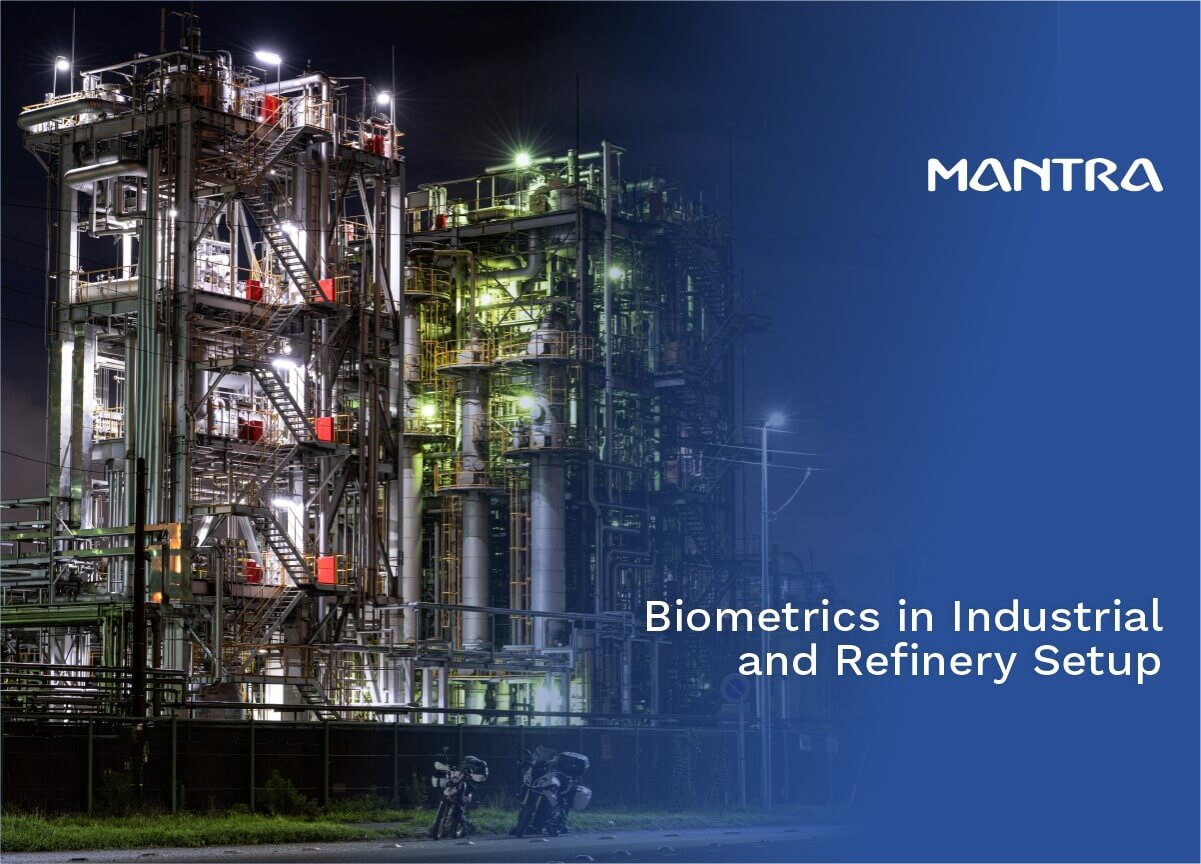
Oil & Gas refineries and factories are the most rugged manufacturing environments. Therefore, ensuring security at these facilities is quite challenging. Since modern factories are becoming more automated and connected through networks, they have to be secured digitally to protect the data and control systems from cyber attacks. Here, the traditional password or PIN is no longer enough to secure employees and assets. The popularity of biometric security because of its unmatched security, convenience, and adaptability makes it suitable for perfect authentication in any industrial environment. In this blog, we will explore the need for biometrics in industrial security and how biometric solutions work.
Why Factories & Refineries Should Shift to Biometric Identity Management Solution?
The ruggedness of factories and refineries makes it difficult to use traditional security methods and necessitates different methodologies or modalities of authentication. The methodologies are to add a layer of security and for the convenience of identification in different scenarios. A factory facility may need to set up multiple solutions for different levels of employees and facilities, such as gateways, office access control, attendance tracking at offices, identifying workers in the field (maybe in harsh conditions), and securing access and control of machines.
Traditional security systems like passwords, PINs, and CCTV cameras have proven to be insufficient for factory facilities since they can be compromised easily. In today's cyber world, intruders can penetrate the system through hacking or stealing credentials. Here, biometrics can be an intact identity and security solution to protect the control system and network.
Biometric Security in Industrial and Refineries
Biometric authentication technology reads a person's unique physical and behavioral characteristics to identify and verify their identity. It includes fingerprint, face, and iris recognition, which are not easy to replicate and can be used in different scenarios. Biometric security can be used in access control, attendance tracking, geofencing, controlling machines, and monitoring manpower.
In a factory, each of the applications mentioned above requires a different level of security, which may require different biometric modalities. Let's say access control system, which can be of any modal (fingerprint, face, iris, or MFA), depending on the application. For example, tracking attendance in the office can be done with a fingerprint-based device, while the same is viable for on-site workers since their hands may have oil or dirt or they may be wearing gloves. In such scenarios, factories can use face recognition devices that are contactless and enable employees to authenticate by just showing their faces without any hassle. On the other hand, critical access control and machine control require secure security options like iris or MFA ( Multi-Factor Authentication).
MFA is something that is trending in enterprises and manufacturing facilities for holding an extra layer of security. MFA uses two or more authentication factors, say a fingerprint and password, together to acquire access. Enterprises and manufacturing facilities are adopting MFA at critical access control points, machines, and systems that are critical to their operations.
How Mantra's Biometric Identity Management Solution Helps Refineries?
All refineries and factories need a complete biometric identity management solution, which might also include non-biometric solutions such as passwords, PINs, or RFID access cards. The solution should also include systems such as turnstiles, door access modules, portable authentication devices, and rugged and adequate IP-certified devices that can withstand severe dust and temperature conditions.
Mantra's biometric identity management solution comes with a comprehensive solution for factories, refineries, and industrial plants. Mantra has its solutions implemented in several factories, including cement factories, dairy plants, ports, textile factories, and enterprises. The biometric security solution covers the entire enterprise with access control, gate control, attendance tracking, system security, etc. And the solution starts with enrolling employees with fingerprints, iris, or faces, for which we have in-house developed ten print scanners (FBI certified). Unlike usual enterprise security, ten-print scanners enable enterprises to enroll all ten fingerprints of their employees so that they can use any finger for authentication or MFA.
Industry 4.0 and Biometric Technology
The current trend in industrial technology for automation and data transfer is known as Industry 4.0. Biometric technology is playing an important part in the development of Industry 4.0 by delivering secure and effective authentication solutions.
Wearable gadgets that use biometric authentication are one example of how biometric technology is used in Industry 4.0. Employees' positions and activity can be tracked with these devices, ensuring that they are in the correct place at the right time and executing the relevant responsibilities. In a broader sense, this is referred regarded as "geofencing," and it is the next step in industrial automation. Regular CCTV in factories can be utilized for real-time monitoring, geofencing, and automation systems using facial recognition technology integrated into geofencing.
Also read: Video Analytics Becoming the Eyes of Industry 4.0
Conclusion
In factories and refineries, biometric identity management solutions provide a secure and dependable approach to managing access control and preventing unwanted access. With the rise of Industry 4.0, it is critical to implement a comprehensive security policy to protect these industries' assets. Biometric security has various advantages, including safe access control, time and attendance management, regulatory compliance, and cost savings. Factories and refineries can increase operational efficiency, productivity, and safety by deploying a biometric identity management solution.
Comments